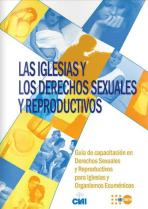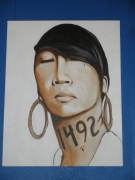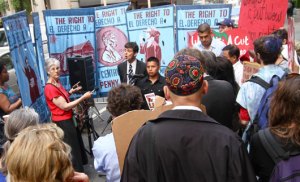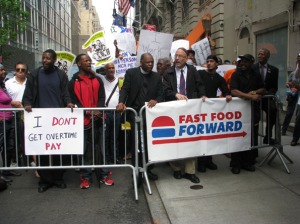“Does your church know you are here?” Before we introduced each other, this was the first question I got from a Latina activist. I was participating of a demonstration for immigration reform in Seattle. A few minutes after I arrived, I met this mother of two who was olding one of the signs and started … Continue reading
Dis-Covering Idolatry: MLB, Labor, and the Anomaly of A-Rod
In his 2013 address to the Bishops Academy of the Evangelical Lutheran Church of America, theologian Luis Rivera-Pagán uncovers how Cristoforo Colombo’s rhetoric of (dis)possession was later masked and sanitized as a story of “discovery.”[1] Analyzing a “founding text” in the “literature of imperialism” written by Colombo (Columbus), Rivera-Pagán analyzes the (dis)possession of Caribbean gold and labor, which were the primary goals of the imperial mission in the Caribbean. He also examines how these idolatrous goals were ethically justified by popular theology and purified in the waters of Christian baptism. (Ironically, constructing persons native to the Caribbean as the “idolaters” was the justification for these material-structural agendas or “missions.”)
This analysis is foundational for understanding the colonial, neocolonial and diasporic context of baseball, which has now existed in the Caribbean since the late nineteenth century. Theologian Carmen Nanko-Fernández, in her “Signs of the Times: Not Just A Game,” examines baseball history and critiques the manner in which many ministers and religion scholars mask or sanitize the colonial conflicts inherent to sports, which are important sites of popular culture. Nanko-Fernández contends that sports have real religious significance but that religious meaning should not be ascribed to public sporting “rituals” without first analyzing the social realities of racism, coloniality and neoliberal economics deeply-rooted within modern sports. To ascribe religious meaning without understanding these social realities amounts to a kind of ahistorical ritual studies that merely dissects the collective effervescence produced at public sports gatherings. Nanko-Fernández argues that powerful colonial interests have long used baseball to dispossess or distract “others” who—in turn—use this game and its institutions in their struggle to survive, feed loved ones, and even mobilize anti-colonial pushback. By attending to (neo)colonial domination and the struggle for survival, which are ordinary and often devoid of much effervescence, the religious significance of sports begins to emerge.

U.S. Naval flag ceremony at Iowa Cubs Minor League Baseball game – 4/24/09. photo by Mass Comm Spec 3rd Class Devin Thorpe via Wiki Commons.
Several journalists have argued that the ongoing “scandal” of baseball players using performance-enhancing drugs (PEDs) is really a larger material-structural scandal. David Zirin’s noteworthy sports column, titled “The Edge of Sports,” has referred to Major League Baseball’s “sweatshop” academies in la República Dominicana and has named the ethno-racial elephant in the room: The majority of the fourteen players recently suspended for PEDs are migrant Dominicanos chasing baseball contracts in the heart of American Empire’s entertainment apparatus. (Most of the remaining players are Venezolanos in very similar circumstances.) Despite his column’s title, Zirin’s commentary regularly reveals that exploitation is central to modern sports, not merely at its edge.
While UNICEF reports that half of the children in la República Dominicana live in dire poverty, MLB grooms exploitable youth labor and the gold they produce for team owners. Whereas la República Dominicana comprises about one one-hundredth of one percent (.0014%) of the world’s population, roughly one-third of Minor League Baseball players come from this impoverished nation and 27% of MLB players come from Latin America, commonly arriving to their diasporic destinations via MLB’s “Dominican pipeline.”

Minor League Baseball game, Harrisburg Senators vs. Trenton Thunder – 4/23/11. photo by Doug Kerr via Wiki Commons.
Despite countless misdeeds and what many consider a repulsive character, the US-born quarter-billionaire Alex Rodriguez should not be depicted as the face of PEDs in baseball nor should he be considered the main driver in this scandalous situation. In recent weeks, the focus on A-Rod has been an effective diversion tactic in what could have been a sustained conversation about MLB’s idolatrous labor-mining in places like Boca Chica, R.D. Instead, corporate media has fixated upon the power struggle between dueling baseball “superpowers,” much as it does with its coverage of petty spats between the two dominant U.S. political parties. For them, the news that is worthy of dramatization is the three-way power struggle between the highest paid baseball player in history (A-Rod), the wealthiest team in history (the Yankees), and the ownership cartel to which the Yankees belong (MLB).
Similar to the scholars who fabricated Colombo’s “discovery” of the Caribbean, corporate sports media today masks (neo)colonial realities with its glimmering coverage of MLB teams “discovering” Caribbean talent—“diamonds in the rough.” In reality, these men are forced, whether by grave necessity or barbed wire enclosures, to remain in baseball camps where they learn to take steroids in pursuit of the “American Dream.” In this American nightmare, compensation and safety are abysmal, with devastating social consequences for most of the 97% of vulnerable children who enter Dominican baseball academies but never arrive on the MLB stage.
Digging beneath the diversionary headlines, we enable ourselves to hear subaltern athletes speaking and are reminded of the importance of Nanko-Fernández’s interdisciplinary/intersectional research. I look forward to her forthcoming analysis of post-9/11 professional baseball in New York City in her chapter “Ordinary Theologies, Extraordinary Circumstances: Baseball at the Intersections of Faith and Popular Culture” in Recovering 9/11 in New York (Cambridge Scholars Press). I also eagerly anticipate her ¡El Santo! Baseball and the Canonization of Roberto Clemente (Mercer University Press), parts of which she has already previewed in a talk at the Baseball Hall of Fame in Cooperstown, NY. Nanko-Fernández reminds us that an idolatrous coloniality and the struggle for life (en conjunto) is not at the edge of sports, popular culture and religion, but at the very heart of our late modern reality.
J.V. Cruz
New York, NY
[1] Many thanks to Bobby Rivera for sharing this excellent address with me.
From Patmos to Eloy, AZ: John of Patmos, Exile and the Dream 9
As a scholar-practitioner, I offer this brief reflection with two aims. First, I invite your participation in the work of survival and liberation currently germinating from within the walls of the Eloy Detention Center in Arizona. Second, I encourage deeper scholarly reflection on how one migrant detainee’s theological reflection relates to the postcolonial/anti-imperial analysis of a Chicano biblical scholar—Dr. David Sánchez.
On Monday, July 22, 2013, nine transnational activists entered the United States of America legally, crossing the border that separates it from los Estados Unidos Mexicanos, in an effort to petition for entry on humanitarian grounds. These activists became known as the “Dream 9” and have been likened to Rosa Parks, though to reiterate—their actions were entirely legal. Upon entering the U.S.A., the activists were placed in immigration detention while their case was considered. Some were then placed in solitary confinement, leading one of these to be put on suicide watch. Once their requests for humanitarian parole were denied, they applied for political asylum, recounting their fears of persecution in México and need to escape into the U.S.A. Journalist Aura Bogado has been in frequent communication with the Dream 9 and even visited them in Eloy. She dispels several myths about their case and describes various acts of solidarity that have been comforting and supportive to the detainees: (more…)
Sólo le Pido a Dios Que el Dolor No Me Sea Indiferente…
On July 8th Pope Francis held a mass at Lampedusa, an Italian island in between Tunisia and Sicily where recently seven immigrants died struggling to cross the Mediterranean to get to Italy. While approximately 20,000 immigrants have died as they immigrate to Lampedusa these recent deaths were particularly tragic in that a local fishing boat crew decided to cut the nets that the survivors were clinging to allowing them to drown rather than being rescued.
Rome Reports on the Pope’s travel to Lampedusa
The Pope used this opportunity to preach against what he calls the “globalization of indifference” and made the following prayer request:
Let us ask the Lord for the grace to weep over our indifference, to weep over the cruelty in the world, in ourselves, and even in those who anonymously make socio-economic decisions that open the way to tragedies like this.
As I reflected over the Pope’s homily and considered the struggle for promoting Comprehensive Immigration Reform in our own nation I recalled the song “Sólo le Pido a Dios” by Mercedes Sosa, a famous Argentinian folk singer, and the powerful words or prayer that calls us to challenge the social indifference in our society. Below I offer the song as sung by both Mercedes Sosa and Leon Geico for your own reflection. However I also want to leave you with this powerful prayer request from a lyric of her great song.
Sólo le pido a Diosque el futuro no me sea indiferente, desahuciado está el que tiene que marchar a vivir una cultura diferente.
———————————————–I only ask of God that i am not indifferent to the future, May I be mindful of the one who has to go away to live in a different culture.
Posted by,
John Gonzalez
Latinoamericanos Protestantes Find a Prophetic Voice
I n the month of May, the Consejo Latinoamericano de Iglesias (CLAI) met in Havana, Cuba, for their VI Asamblea General. This was a time of reflection as the CLAI faces the same challenges as any other religious groups face nowadays. Like any other – mainline Protestant – church, the CLAI has also seen its membership, economic resources and political influence throughout the Américas dwindle.
n the month of May, the Consejo Latinoamericano de Iglesias (CLAI) met in Havana, Cuba, for their VI Asamblea General. This was a time of reflection as the CLAI faces the same challenges as any other religious groups face nowadays. Like any other – mainline Protestant – church, the CLAI has also seen its membership, economic resources and political influence throughout the Américas dwindle.
As a latinoamericano protestante, I feel a strong connection to the CLAI. It pains me to see that this organization, like my own faith tradition, is facing challenges that are at times out of our control. Yet, it also gives me hope to read about some of the prophetic decisions and calls to action that the delegates to the Asamblea approved. Among these decisions is the clear one calling the member churches to support a holistic approach to sexual and reproductive rights. (You can read the full text of the resolution, in Spanish, here: http://www.claiweb.org/vi%20asamblea/consenso%20de%20la%20habana.html)
The Hispanic culture and by extension our churches and faith communities have for centuries avoided talking openly about sexuality and reproductive rights. The reasons for this attitude are many and way beyond the scope of this blog. However, for those of us who have ministered among Hispanic and Latin@ people in the iglesia envangélica y protestante, the CLAI’s pronouncement is a breath of fresh air.
The CLAI’s pronouncement makes something very clear: the time has come to be prophetic, pastoral and visionary in the way in which sexuality and reproductive rights are talked about within our faith communities. Certainly, the approach that the CLAI has takes puts the iglesias evangélicas y protestantes at odds with the teachings of our sisters and brothers in the Roman Catholic faith tradition. Yet, I believe that to be honest about our understanding of ethical and moral issues helps in holding more sincere conversations, and foster better relationships among the different traditions that we represent. This sincerity and honesty will, hopefully, bring us closer together regardless of our theological differences.
I am extremely proud to belong to a tradition that, in spite of the challenges we face, is willing to be prophetic and pastoral. My prayer is that we can put these things that the CLAI encourages our churches to do into practice, and to continue building the familia de Dios we are called to build.
By Rev. J. Manny Santiago
Seattle, WA
Cardinal Bergoglio (Papa Francisco) Y la Justicia Social (English excerpts below)
En este video Cardinal Bergoglio (Nuestro Papa Francisco) promueve la organización “Caritas” Y profundamente hace un caso poderoso para la posición de la Iglesia en la justicia social y la transformación social que somos llamados a abrazar como Católicos.
En inglés ofreceré algunas citas de este video abajo.
In this Spanish video Cardinal Bergoglio (our present Pope Francis) promotes the organization “Caritas” but in doing so makes a impassioned defense for the Church’s position on social justice and the social transformation that we as Catholics are called upon to make. Here are some excerpts from this talk:
Excuse me if I offend any of you, I do not mean to offend anyone but I want to show the dangers and challenges that we face today as we move forward in adopting the charitable dimension of Church’s mission… (more…)
Immigration and Border Injustices: NY Times article
This May 28, 2013 New York Times article shares a Human Rights Watch reports that list the abuses by Federal government in enforcing laws to detain the immigrant community.
Immigration and Border Injustice – NYTimes.com.
The article expresses caution with regards to the Senate version of the Comprehensive Immigration Reform Bill. While the Bill does offer some positive policies like the pathway to citizenship there continues to be some enforcement concerns such as “Operation Streamline” where detained immigrants will have little access for legal services to defend themselves.
Frontlines, a PBS film documentary, has produced this 2011 video titled “Lost in Detention.” This documentary shares the concerns over the enforcement of immigrant detention and deportation, enforcement programs like “secure communities,” and the overall injustices surrounding border securities.
Click on this link to go to the Frontline website to see the full program. Below is a brief news interview on this documentary.
¡Sí Se Puede! Uniting Across the Sidewalk and Up the Food Chain
Yesterday, the Coalition of Immokalee Workers (CIW), a Florida-based agricultural worker organization, held a sidewalk press conference in New York City. Symbols of faith, a spirit of transformative love, and good news from and for impoverished people were palpable, as workers and their allies demanded that the Wendy’s fast food corporation get with the Fair Food Program.
The gathering occurred in front of the Sofitel Hotel, site of Wendy’s annual shareholders meeting. The luxury hotel is perhaps best known as the site of an encounter between Dominique Strauss-Kahn, then head of the International Monetary Fund, and Nafissatou Diallo, a hotel worker, which sparked a scandal that inadvertently shed fleeting media light on the vast disparities in wealth and decision-making power that exist between global society’s service workers and its financial elites.
Luxury and the scandal of social inequality were again on display at the Sofitel yesterday as the CIW bore witness to the toil and exploitation that are commonplace in highly profitable US agribusinesses: slavery, poverty wages, wage theft, pesticide exposure, sexual harassment and countless other labor abuses. Religious leader allies connected these experiences to the narrative traditions of their communities, invoking Hebrew liberation from slavery in Egypt and the “sinfulness” of exploitation. They demanded that Wendy’s join the CIW’s Fair Food Program, speaking of the need for solidarity amid related human struggles, of a common human family where “We are our brother and sister’s keepers,” and of neighbor love. The program being promoted includes a human rights-based Code of Conduct and a price premium of “a penny per pound” to be added to tomato pickers’ paychecks, provisions that all of Wendy’s major competitors, including McDonald’s, have accepted.
Surprisingly, during the press conference, workers from the NYC-based Fast Food Forward campaign marched on the sidewalk toward the Sofitel from the opposite direction. Having executed the largest fast food workers strike in US history and then inspired an even larger strike in Detroit, they too had beef with Wendy’s. They denounced poverty wages, chanting, “We can’t survive on $7.25” (the state’s minimum wage) and rhythmically rapped their demand of “15 (dollars) and a union.” Like the CIW, they too denounced various modes of wage theft and degrading treatment, with one affirming his inherent dignity saying, “I am a human being, not a machine.”
The CIW’s “Sí Se Puede” chant eventually migrated across the sidewalk to be taken up by the fast food workers. The two groups recognized many common sources of their suffering and their shared desire for living wages and greater decision-making power within their workplaces. When the CIW press conference ended, many joined the Fast Food Forward rally. In these organizations, along with emerging national organizations like the Food Chain Workers Alliance, which aims to unite these disparate worker movements, I see people co-operating with the liberating and unifying Spirit whose creative energy “renews the face of the earth” (Psalm 104:30).
Click here to tell Wendy’s to join CIW’s Fair Food Program.
Click here to tell Wendy’s and other fast food giants that you support NYC’s fast food workers in their demand of a $15 hourly wage and respect for their right to organize a union without employer interference.
See this video for coverage of the CIW’s march in NYC on the Saturday before Wendy’s shareholder meeting.
J.V. Cruz
New York, NY
Catholic Advocacy on Immigration Reform
On May 21, 2013 two organizations sponsored by the US Bishops conference, Justice for Immigrants and the Catholic Legal Immigration Network, held an advocacy day on Comprehensive Immigration Reform. The US Bishops have been consistently in support of immigrant rights seeing this issue very much in line with the dignity of the human person and recognize the dehumanizing experience of the immigrant community as they struggle to find opportunities and hope for themselves and their families.
The concerns expressed by the Bishops were in relation to the Senate Bill that is currently being developed. The issued revolved around humane approaches to the immigrant process based on Catholic social teaching and the experiences that Catholic Charities and our immigrant services has in providing services to this community. Among other issues these concerns included the promotion of a viable and family based pathway to citizenship, family reunification policies, and addressing inhumane treatment of immigrants and their children during the detention process.
 A couple of us from Catholic Charities on Long Island joined other to advocate on this issue with our legislators. While other members of our delegation met with the Senators we had the opportunity to meet with four of our representatives. Overall we found the two democrats and two republicans that we met supportive in principle. Although we recognized that at present the House does not have a Bill we gave them a heads up with regards to the position of the US Bishops. More importantly perhaps is the relationship we developed with our representatives as we invited them to follow up with us for a further conversation where we can share with them some of the Long Island immigrant experience. (more…)
A couple of us from Catholic Charities on Long Island joined other to advocate on this issue with our legislators. While other members of our delegation met with the Senators we had the opportunity to meet with four of our representatives. Overall we found the two democrats and two republicans that we met supportive in principle. Although we recognized that at present the House does not have a Bill we gave them a heads up with regards to the position of the US Bishops. More importantly perhaps is the relationship we developed with our representatives as we invited them to follow up with us for a further conversation where we can share with them some of the Long Island immigrant experience. (more…)
An Encouraging Moment for the Christian Church
 Christians do not always get along. We argue over ecclesiastical organization (church polity), disagree on theological positions, interpret biblical passages differently, and take opposite views on several social matters. What has been interesting to watch in the immigration debate, however, is how Christians from a wide spectrum of ecclesial and theological traditions have come together to support comprehensive immigration reform.
Christians do not always get along. We argue over ecclesiastical organization (church polity), disagree on theological positions, interpret biblical passages differently, and take opposite views on several social matters. What has been interesting to watch in the immigration debate, however, is how Christians from a wide spectrum of ecclesial and theological traditions have come together to support comprehensive immigration reform.
I do a fair amount of traveling to speak on immigration and a bit of writing on it, too. My area is the biblical and theological foundations for a more open stance to immigrants. I am an evangelical, but I have been with every kind of Protestant denomination imaginable (in church gatherings, seminaries, and universities) and Roman Catholics. I have met amazing people — from academics, to church leaders, to pastors, to lay people working with immigrants “on the ground.” I continue to be encouraged by their passion and learn from their work. I count them as friends; and I probably never would have met many of them if not for immigration efforts.
We are standing shoulder-to-shoulder on this, even though there are some who oppose us. What a wonderful testimony of Christian unity! As we continue to strive for change, let’s also enjoy the journey together with our other brothers and sisters in our common cause. And may these new friendships continue.
Posted By:
Prof. Danny Carroll







